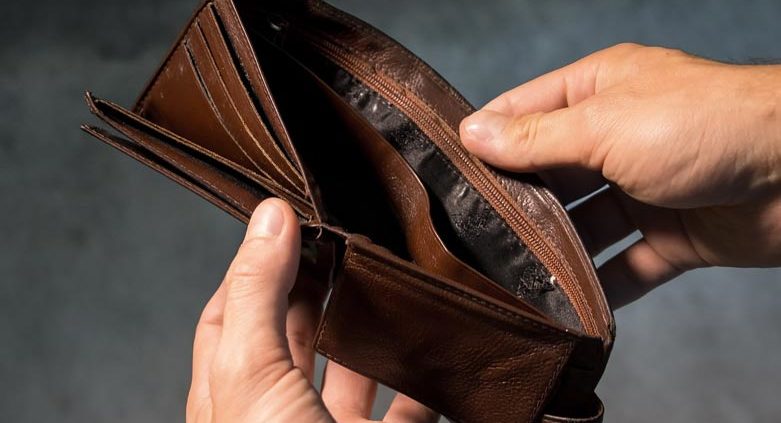Dangers of Ś and How Debt Settlement Negotiation Avoids Them
Getting into serious debt can be a terrifying experience. Between the endless phone calls, emails, statements, and notices, it can feel like debt relief options are virtually non-existent. Many people who experience this end up filing or attempting to file for bankruptcy because they feel there are no other routes to consider. With an accredited debt relief agency, however, filing does not have to be your go-to solution.
One of the best and often overlooked ways to get you and your family out of financial hardship is allowing a debt relief professional to negotiate with your lending companies and teach you how to avoid bankruptcy in the short and long term.
Bankruptcy Does not Eliminate All of Your Debt
There are two main types of bankruptcy — Chapter 7 and Chapter 13. Filing for Chapter 7 will lead to the liquidation of your major assets, including investments, savings accounts, automobiles, boats, and sometimes even homes, as a way to pay back your remaining debts. Chapter 13 does not require you liquidate any goods because those filing Chapter 13 must earn enough money to take part in a repayment plan organized by the court.
Regardless of which chapter you seek to file for, however, it is important to realize that one of the biggest, and perhaps most dangerous, misconceptions about bankruptcy is that it quickly eliminates all of your debt so that you can essentially start over. That is simply not the case. Filing does eliminate some debts — and none without a steep price — but does not include taxes, liens, student loans, alimony, child support, fraud-based debts, association fees, and many other categories.
One of the only ways to truly get assistance with all of your outstanding unsecured debts is with debt settlement negotiation. An experienced debt relief specialist will work with you and your lenders to significantly reduce what you owe and set up a payment plan so you can pay off your debts within just a few years.
A Large Mark on Your Credit Report
As important as it is to know how to avoid bankruptcy at all costs, it is equally important to understand how to keep your credit score from sinking too low. Going bankrupt can significantly decrease your credit score by more than 200 points. Unless you happen to have a perfect score of 850 at the time you go bankrupt — which is highly unlikely — this drop could easily bring you under 600, which is considered a poor rating.
Bankruptcy, regardless of what kind, stays on your credit report for 10 years. During that time banks, companies, and even housing organizations can see your status, which can make it nearly impossible to get approved for a home or car loan or credit cards. If you do happen to get approved, the interest rates will be higher than average, likely close to 30 percent.
Debt settlement negotiation avoids this 10-year financial stagnation by paying off a debt you can afford rather than eliminating them altogether. While it can lower your score temporarily while you pay off your debts, it can bounce back up and will not automatically hinder you from getting a new loan or credit line if you need it.
You Put Your Assets on the Line
Bankruptcy does not just disrupt your life financially, it can also take a large toll on your property. If you file for Chapter 7, which most people do so they do not have to pay off their debts, you may be putting all of your highly-valued assets at risk. If you own a boat, land, homes, or vehicles, have won the lottery, or received an inheritance, the bank will likely cash those assets in. The money earned from those properties becomes part of your bankruptcy estate, which the bank will then divide between the lenders to which you owe money.
While you will not necessarily lose all of your properties and become homeless and penniless overnight, there is a high risk of losing large sources of income, especially if you rent out your home or property. Unfortunately, you do not get to decide what the state will or will not take, and they can take any additional valuable assets you may receive up to 180 days after you file.
If you choose to pursue debt settlement instead, you will work with someone who will negotiate your money without compromising your assets. Nobody wants to lose everything they own when they already feel like they are at the bottom, which is why a debt relief expert works diligently to ensure you can reach a settlement that works for you. This strategy will never force you to give up your belongings or property and will always make sure you know exactly what to expect well in advance of entering a deal with your lenders.
Avoid Making a Bad Situation Even Worse
Bankruptcy should never be your first option when it comes time to develop a strategy to get out of debt. Between a decade of harm on your credit report, the risk of losing significant assets, and the fact that you will not even be able to pay off all of your debts with the status, there are usually much better options available. Talk to Liberty Debt Relief today to find out how to avoid bankruptcy and find the debt settlement solution that works for you and your future.














Leave a Reply
Want to join the discussion?Feel free to contribute!